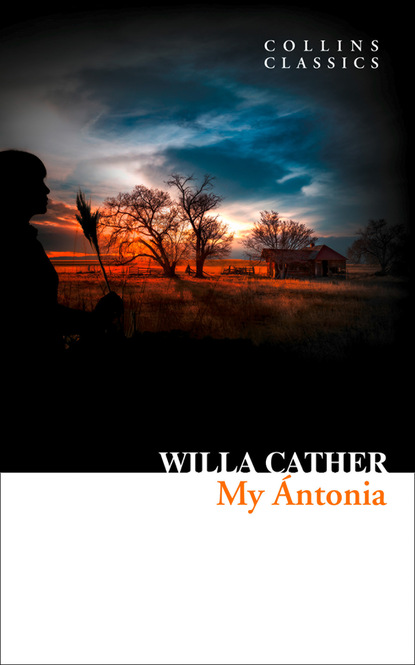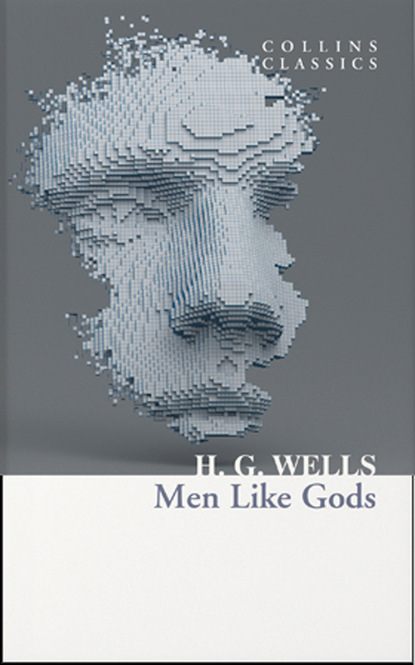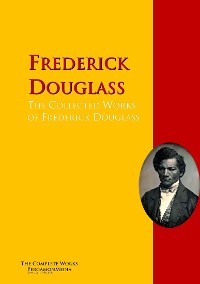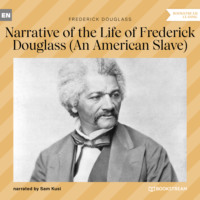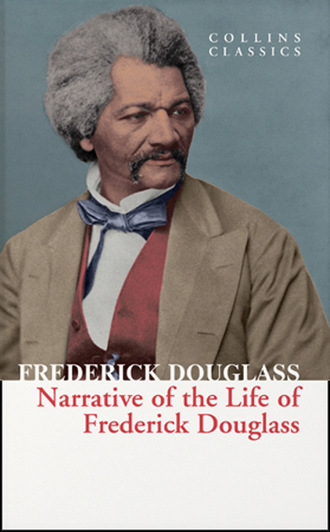
Narrative of the Life of Frederick Douglass

NARRATIVE OF THE LIFE OF FREDERICK DOUGLASS
Frederick Douglass

Copyright
William Collins
An imprint of HarperCollinsPublishers
1 London Bridge Street
London SE1 9GF
WilliamCollinsBooks.com
This eBook first published in Great Britain by William Collins in 2020
Cover photograph © Shutterstock
A catalogue record for this book is available from the British Library
All rights reserved under International and Pan-American Copyright Conventions. By payment of the required fees, you have been granted the non-exclusive, non-transferable right to access and read the text of this e-book on-screen. No part of this text may be reproduced, transmitted, down-loaded, decompiled, reverse engineered, or stored in or introduced into any information storage and retrieval system, in any form or by any means, whether electronic or mechanical, now known or hereinafter invented, without the express written permission of HarperCollins
Source ISBN: 9780008403492
Ebook Edition © September 2020 ISBN: 9780008403447
Version: 2020-08-27
CONTENTS
Cover
Title Page
Copyright
History of William Collins
Life and Times
PREFACE
LETTER FROM WENDELL PHILLIPS, ESQ.
CHAPTER I
CHAPTER II
CHAPTER III
CHAPTER IV
CHAPTER V
CHAPTER VI
CHAPTER VII
CHAPTER VIII
CHAPTER IX
CHAPTER X
CHAPTER XI
APPENDIX
A PARODY
FOOTNOTES
Classic Literature: Words and Phrases
About the Publisher
History of William Collins
In 1819, millworker William Collins from Glasgow, Scotland, set up a company for printing and publishing pamphlets, sermons, hymn books, and prayer books. That company was Collins and was to mark the birth of HarperCollins Publishers as we know it today. The long tradition of Collins dictionary publishing can be traced back to the first dictionary William co-published in 1825, Greek and English Lexicon. Indeed, from 1840 onwards, he began to produce illustrated dictionaries and even obtained a licence to print and publish the Bible.
Soon after, William published the first Collins novel; however, it was the time of the Long Depression, where harvests were poor, prices were high, potato crops had failed, and violence was erupting in Europe. As a result, many factories across the country were forced to close down and William chose to retire in 1846, partly due to the hardships he was facing.
Aged 30, William’s son, William II, took over the business. A keen humanitarian with a warm heart and a generous spirit, William II was truly “Victorian” in his outlook. He introduced new, up-to-date steam presses and published affordable editions of Shakespeare’s works and The Pilgrim’s Progress, making them available to the masses for the first time.
A new demand for educational books meant that success came with the publication of travel books, scientific books, encyclopedias, and dictionaries. This demand to be educated led to the later publication of atlases, and Collins also held the monopoly on scripture writing at the time.
In the 1860s Collins began to expand and diversify and the idea of “books for the millions” was developed, although the phrase wasn’t coined until 1907. Affordable editions of classical literature were published, and in 1903 Collins introduced 10 titles in their Collins Handy Illustrated Pocket Novels. These proved so popular that a few years later this had increased to an output of 50 volumes, selling nearly half a million in their year of publication. In the same year, The Everyman’s Library was also instituted, with the idea of publishing an affordable library of the most important classical works, biographies, religious and philosophical treatments, plays, poems, travel, and adventure. This series eclipsed all competition at the time, and the introduction of paperback books in the 1950s helped to open that market and marked a high point in the industry.
HarperCollins is and has always been a champion of the classics, and the current Collins Classics series follows in this tradition—publishing classical literature that is affordable and available to all. Beautifully packaged, highly collectible, and intended to be reread and enjoyed at every opportunity.
Life and Times
It is a uniquely difficult task to economically describe the life and times of a man who wrote and published no less than three versions of his autobiography during his lifetime. Frederick Douglass, through his life’s work, demonstrated the powerful effect of biographical writing, but also showed how it could be moulded to one’s purpose and political agenda, through what was edited and re-written. He spent his life lecturing about slavery, the abolitionist movement and women’s rights, as well as his biographical writing, and this had a profound effect on the politics of his time and our understanding of slave life in nineteenth-century America.
Early life and his road to freedom
Frederick Douglass was born into slavery sometime in 1818 on a Maryland plantation. The exact date of his birth is unknown, a detail he comments on in his Narrative as one of the many injustices that contributed to an erosion of self-hood as a slave: ‘The white children could tell their ages. I could not tell why I ought to be deprived of the same privilege’. His father was likely a white man, though his exact identity is unknown. He was raised for the most part by his maternal grandparents, working on the plantation of Thomas Auld. He was later sent to live in Baltimore to work for Thomas Auld’s brother, Hugh Auld, as a house servant. Hugh’s wife, Sophia, took an interest in Douglass and began to teach him to read and write. However, as teaching slaves to read was strongly discouraged, Douglass eventually had to finish his own education, teaching himself with whatever reading material he could find. The young Douglass was soon returned to Thomas Auld’s plantation, where he was deemed too rebellious and sent to work on Edward Covey, the ‘slave breakers’, farm. After enduring incredibly harsh treatment under Covey, Douglass finally decided to fight back: he felt this physical confrontation to be a transformative moment in his life. He made his first attempt at escaping in 1836, after which he was briefly jailed. Later he was returned to Hugh Auld, where he planned his next escape. He also met and fell in love with Anna Murray, a freewoman, at this time, and she was instrumental in his escape: she helped him pose as a sailor and travel to New York under these pretences. She soon followed him there and they were married in New York City.
Beginnings of a career
Soon after their marriage, the couple settled in Massachusetts, which is where Douglass adopted his name, after Sir Walter Scott’s ‘The Lady of the Lake’. Having learned to read and write through the study of the Bible, it was no surprise that Douglass was drawn to the clerical profession, becoming a licensed preacher in 1839. During this time he met journalist William Lloyd Garrison, who became an important contact, friend and early ally in Douglass’s abolitionist work. Garrison hired him as a speaker after hearing his first anti-slavery speech, and Douglass began to tour the country, giving impassioned speeches on the injustices of slavery.
Narrative of the Life of Frederick Douglass
Frederick Douglass’s first autobiography, Narrative of the Life of Frederick Douglass, was published in 1845 by Garrison’s Anti-Slavery Office in Boston. It was a commercial success, selling 30,000 copies in the first five years. While many earlier slave narratives were ghost-written by white editors, it was clear that Douglass had written this work himself, as by this point he was a well-known orator with a distinctive style that translated to his writing. The fact that several prefaces to the book attested to the truthfulness of Douglass’s claims in the book demonstrates the wide-spread, unfounded scepticism regarding his abilities and trustworthiness as a writer. The autobiography accounts his early life, as well as his road to freedom, however Douglass did not write about his escape until the third version of his autobiography, so as not to endanger the lives and plans of other fugitives. With this work, he was not only engaging with the ‘slave narrative’ genre, but showing his concern with the limits of literature and autobiography, the divide between real experience and what can be conveyed through language. Although the revised editions of his work were also well received, the original Narrative was the greatest commercial success, and had the most influence on the abolitionist movement.
‘Slave narrative’
Douglass’s work tied into a wider tradition: the slave narrative, with its roots in eighteenth-century captivity narratives, which came to prominence as a literary genre in the mid-nineteenth century. Many of these narratives were originally used to bolster support for the abolitionist movement, appealing to northern sensibilities and arousing sympathy. Harriet Beecher Stowe, a white abolitionist, published her fictionalised account of slavery in the South, Uncle Tom’s Cabin, in 1852, which became an enormous success and an important tool in the abolitionist movement. However, it’s important to note that even Stowe seemed to accept notions of racial difference in her novel, highlighting the fact that abolitionists themselves were often racist, portraying black people as ignorant and morally underdeveloped. Many of these slave narratives were also tied into the American Romantic movement and audiences demand for sensationalist stories, so their prevalence didn’t always have humanitarian or politically-minded roots. While Uncle Tom’s Cabin continued to be popular well into the twentieth century, important movements to widen and reinterpret the canon of African-American literature have resulted in first-hand accounts of slavery coming to the forefront.
Revisions and later work
As Douglass’s work as an orator and writer began to gain a following, fear for his freedom led him to travel to Great Britain, where he toured as a public speaker to great success. His British followers eventually raised funds to purchase his freedom so that he could return to America as a free man. After the success of Narrative, he continued to write, founding the abolitionist newspaper North Star, and publishing The Heroic Slave in 1852. This fictionalised account of a slave’s life was a departure from his earlier work, as it was mediated by a white man in the form of his narrator, Mr Listwell. In 1855 however, he returned to the autobiographical genre, with a revised version of his life story, My Bondage and My Freedom. This edition contained more information about the families he lived under as well as his own family and daily life. Some see his later emphasis on the familial aspect of slave life, especially the role of women on the plantation, as a conscious tying in to the work of other female writers of slave narratives at the time. Women had become a powerful force in the abolitionist movement, with works by Harriet Jacobs and Mary Prince having a profound influence, as well as speeches by Sojourner Truth. Douglass was concerned by the disenfranchisement of women, and become a powerful advocate in the women’s rights movement. He continued his advocacy work during the Civil War, recruiting black soldiers to the Union army and fighting for their right to equal pay. After the war, he continued his work, publishing his third autobiography, Life and Times of Frederick Douglass. In 1895, after giving a speech on women’s rights, Douglass suffered a heart attack and passed away at the age of 77.
PREFACE
In the month of August, 1841, I attended an anti-slavery convention in Nantucket, at which it was my happiness to become acquainted with Frederick Douglass, the writer of the following Narrative. He was a stranger to nearly every member of that body; but, having recently made his escape from the southern prison-house of bondage, and feeling his curiosity excited to ascertain the principles and measures of the abolitionists,—of whom he had heard a somewhat vague description while he was a slave,—he was induced to give his attendance, on the occasion alluded to, though at that time a resident in New Bedford.
Fortunate, most fortunate occurrence!—fortunate for the millions of his manacled brethren, yet panting for deliverance from their awful thraldom!—fortunate for the cause of negro emancipation, and of universal liberty!—fortunate for the land of his birth, which he has already done so much to save and bless!—fortunate for a large circle of friends and acquaintances, whose sympathy and affection he has strongly secured by the many sufferings he has endured, by his virtuous traits of character, by his ever-abiding remembrance of those who are in bonds, as being bound with them!—fortunate for the multitudes, in various parts of our republic, whose minds he has enlightened on the subject of slavery, and who have been melted to tears by his pathos, or roused to virtuous indignation by his stirring eloquence against the enslavers of men!—fortunate for himself, as it at once brought him into the field of public usefulness, “gave the world assurance of a MAN,” quickened the slumbering energies of his soul, and consecrated him to the great work of breaking the rod of the oppressor, and letting the oppressed go free!
I shall never forget his first speech at the convention—the extraordinary emotion it excited in my own mind—the powerful impression it created upon a crowded auditory, completely taken by surprise—the applause which followed from the beginning to the end of his felicitous remarks. I think I never hated slavery so intensely as at that moment; certainly, my perception of the enormous outrage which is inflicted by it, on the godlike nature of its victims, was rendered far more clear than ever. There stood one, in physical proportion and stature commanding and exact—in intellect richly endowed—in natural eloquence a prodigy—in soul manifestly “created but a little lower than the angels”—yet a slave, ay, a fugitive slave,—trembling for his safety, hardly daring to believe that on the American soil, a single white person could be found who would befriend him at all hazards, for the love of God and humanity! Capable of high attainments as an intellectual and moral being—needing nothing but a comparatively small amount of cultivation to make him an ornament to society and a blessing to his race—by the law of the land, by the voice of the people, by the terms of the slave code, he was only a piece of property, a beast of burden, a chattel personal, nevertheless!
A beloved friend from New Bedford prevailed on Mr. Douglass to address the convention: He came forward to the platform with a hesitancy and embarrassment, necessarily the attendants of a sensitive mind in such a novel position. After apologizing for his ignorance, and reminding the audience that slavery was a poor school for the human intellect and heart, he proceeded to narrate some of the facts in his own history as a slave, and in the course of his speech gave utterance to many noble thoughts and thrilling reflections. As soon as he had taken his seat, filled with hope and admiration, I rose, and declared that Patrick Henry, of revolutionary fame, never made a speech more eloquent in the cause of liberty, than the one we had just listened to from the lips of that hunted fugitive. So I believed at that time—such is my belief now. I reminded the audience of the peril which surrounded this self-emancipated young man at the North,—even in Massachusetts, on the soil of the Pilgrim Fathers, among the descendants of revolutionary sires; and I appealed to them, whether they would ever allow him to be carried back into slavery,—law or no law, constitution or no constitution. The response was unanimous and in thunder-tones—”NO!” “Will you succor and protect him as a brother-man—a resident of the old Bay State?” “YES!” shouted the whole mass, with an energy so startling, that the ruthless tyrants south of Mason and Dixon’s line might almost have heard the mighty burst of feeling, and recognized it as the pledge of an invincible determination, on the part of those who gave it, never to betray him that wanders, but to hide the outcast, and firmly to abide the consequences.
It was at once deeply impressed upon my mind, that, if Mr. Douglass could be persuaded to consecrate his time and talents to the promotion of the anti-slavery enterprise, a powerful impetus would be given to it, and a stunning blow at the same time inflicted on northern prejudice against a colored complexion. I therefore endeavored to instil hope and courage into his mind, in order that he might dare to engage in a vocation so anomalous and responsible for a person in his situation; and I was seconded in this effort by warm-hearted friends, especially by the late General Agent of the Massachusetts Anti-Slavery Society, Mr. John A. Collins, whose judgment in this instance entirely coincided with my own. At first, he could give no encouragement; with unfeigned diffidence, he expressed his conviction that he was not adequate to the performance of so great a task; the path marked out was wholly an untrodden one; he was sincerely apprehensive that he should do more harm than good. After much deliberation, however, he consented to make a trial; and ever since that period, he has acted as a lecturing agent, under the auspices either of the American or the Massachusetts Anti-Slavery Society. In labors he has been most abundant; and his success in combating prejudice, in gaining proselytes, in agitating the public mind, has far surpassed the most sanguine expectations that were raised at the commencement of his brilliant career. He has borne himself with gentleness and meekness, yet with true manliness of character. As a public speaker, he excels in pathos, wit, comparison, imitation, strength of reasoning, and fluency of language. There is in him that union of head and heart, which is indispensable to an enlightenment of the heads and a winning of the hearts of others. May his strength continue to be equal to his day! May he continue to “grow in grace, and in the knowledge of God,” that he may be increasingly serviceable in the cause of bleeding humanity, whether at home or abroad!
It is certainly a very remarkable fact, that one of the most efficient advocates of the slave population, now before the public, is a fugitive slave, in the person of Frederick Douglass; and that the free colored population of the United States are as ably represented by one of their own number, in the person of Charles Lenox Remond, whose eloquent appeals have extorted the highest applause of multitudes on both sides of the Atlantic. Let the calumniators of the colored race despise themselves for their baseness and illiberality of spirit, and henceforth cease to talk of the natural inferiority of those who require nothing but time and opportunity to attain to the highest point of human excellence.
It may, perhaps, be fairly questioned, whether any other portion of the population of the earth could have endured the privations, sufferings and horrors of slavery, without having become more degraded in the scale of humanity than the slaves of African descent. Nothing has been left undone to cripple their intellects, darken their minds, debase their moral nature, obliterate all traces of their relationship to mankind; and yet how wonderfully they have sustained the mighty load of a most frightful bondage, under which they have been groaning for centuries! To illustrate the effect of slavery on the white man,—to show that he has no powers of endurance, in such a condition, superior to those of his black brother,—Daniel O’connell, the distinguished advocate of universal emancipation, and the mightiest champion of prostrate but not conquered Ireland, relates the following anecdote in a speech delivered by him in the Conciliation Hall, Dublin, before the Loyal National Repeal Association, March 31, 1845. “No matter,” said Mr. O’connell, “under what specious term it may disguise itself, slavery is still hideous. It has a natural, an inevitable tendency to brutalize every noble faculty of man. An American sailor, who was cast away on the shore of Africa, where he was kept in slavery for three years, was, at the expiration of that period, found to be imbruted and stultified—he had lost all reasoning power; and having forgotten his native language, could only utter some savage gibberish between Arabic and English, which nobody could understand, and which even he himself found difficulty in pronouncing. So much for the humanizing influence of The Domestic Institution!” Admitting this to have been an extraordinary case of mental deterioration, it proves at least that the white slave can sink as low in the scale of humanity as the black one.
Mr. Douglass has very properly chosen to write his own Narrative, in his own style, and according to the best of his ability, rather than to employ some one else. It is, therefore, entirely his own production; and, considering how long and dark was the career he had to run as a slave,—how few have been his opportunities to improve his mind since he broke his iron fetters,—it is, in my judgment, highly creditable to his head and heart. He who can peruse it without a tearful eye, a heaving breast, an afflicted spirit,—without being filled with an unutterable abhorrence of slavery and all its abettors, and animated with a determination to seek the immediate overthrow of that execrable system,—without trembling for the fate of this country in the hands of a righteous God, who is ever on the side of the oppressed, and whose arm is not shortened that it cannot save,—must have a flinty heart, and be qualified to act the part of a trafficker “in slaves and the souls of men.” I am confident that it is essentially true in all its statements; that nothing has been set down in malice, nothing exaggerated, nothing drawn from the imagination; that it comes short of the reality, rather than overstates a single fact in regard to slavery as it is. The experience of Frederick Douglass, as a slave, was not a peculiar one; his lot was not especially a hard one; his case may be regarded as a very fair specimen of the treatment of slaves in Maryland, in which State it is conceded that they are better fed and less cruelly treated than in Georgia, Alabama, or Louisiana. Many have suffered incomparably more, while very few on the plantations have suffered less, than himself. Yet how deplorable was his situation! what terrible chastisements were inflicted upon his person! what still more shocking outrages were perpetrated upon his mind! with all his noble powers and sublime aspirations, how like a brute was he treated, even by those professing to have the same mind in them that was in Christ Jesus! to what dreadful liabilities was he continually subjected! how destitute of friendly counsel and aid, even in his greatest extremities! how heavy was the midnight of woe which shrouded in blackness the last ray of hope, and filled the future with terror and gloom! what longings after freedom took possession of his breast, and how his misery augmented, in proportion as he grew reflective and intelligent,—thus demonstrating that a happy slave is an extinct man! how he thought, reasoned, felt, under the lash of the driver, with the chains upon his limbs! what perils he encountered in his endeavors to escape from his horrible doom! and how signal have been his deliverance and preservation in the midst of a nation of pitiless enemies!



